Ukraine war and Western arms supply to Kiev reshaping world order
By Reza Javadi
The United Kingdom has confirmed that it is supplying Ukraine with long-range cruise missiles, becoming the first country to supply Kiev with such weapons, even before the United States.
The so-called “Storm Shadow” cruise missiles are reportedly able to carry a 450kg conventional warhead to a range of up to 200 miles (300km) and are designed to target hard strongholds and key infrastructures, according to the manufacturer.
Two days after delivering the air-launched missiles to Ukraine last week, Russia warned that long-range missiles are being used against civilians and “non-military targets” in the Luhansk region in eastern Ukraine.
According to Russia's Defense Ministry, Ukrainian aircraft struck two industrial sites in the Russian-controlled city of Luhansk with Storm Shadow missiles supplied by the UK.
Referring to the "destruction of nearby residential buildings" and "injury of six children," the ministry said in a statement that a fire broke out after the attack at the food and chemical company in Luhansk.
"Storm Shadow air-to-air missiles supplied to the Kiev regime by Britain were used for the strike, contrary to London's statements that these weapons would not be used against civilian targets," the statement noted.
Storm Shadow puts a wide range of Russian critical dependencies at risk: fuel, ammunition dumps, command and control bunkers, and other high-value targets.
If Russia’s command and control centers are targeted by these missiles, Moscow will not stay silent and therefore an escalation of the war is expected after the deployment of the UK-supplied missiles.
Arms for Kiev, sanctions for Moscow
Since the beginning of the conflict between Russia and Ukraine, in addition to sending weapons and financial aid to Kiev and imposing extensive sanctions against Russia, Britain has also trained Ukrainian soldiers on its soil.
So far, according to reports, the UK has sanctioned more than 1,100 Russian citizens and over 100 governmental organizations since Moscow launched the military operation last February.
The country is the second largest supplier of military aid to Ukraine since the start of the war, committing £4.6 billion in military assistance to Kiev so far (£2.3 billion in 2022 and a commitment to match that funding in 2023), according to British parliamentary documents.
The delivery of the recent long-range missiles comes on the heels of a £250 million military package for Ukraine which included hundreds of thousands of rounds and artillery ammunition.
On the other side, the US has just promised delivery of F-16 fighter jets along with a new military package worth $375 million for Ukraine. On the sidelines of the G20 meeting in Japan, US President Joe Biden gave the green light to its allies to supply Ukraine with F-16 fighter jets, as countries cannot export American weapons and munitions without US consent.
In a recent article, New York Times Columnist David French stressed “the possibility of escalation” after Biden’s green light for the export of F-16s to Ukraine, as the new-generation fighters – provided by US allies -- will trigger harsh responses from Russia.
The US has encouraged Western countries (including Germany) to send weapons to Ukraine so that even after the war, these countries will remain in need of American armaments as their military warehouses diminish in resources.
The Western side, led by the US and the UK, has flooded Ukraine with a raft of lethal weapons, including advanced missile systems, armored vehicles, tanks, and communication systems, in addition to long-range attack drones, to be used against the Russian forces.
Washington’s military and economic aid to Ukraine alone stands at $40 billion, along with real-time sophisticated weapons systems. The outcome, however, has been zero.
Proxy battlefield for West
Russia's military operation against Ukraine has provided a proxy battle-field for the West to practice eroding Moscow’s military power and global influence on the pretext of protecting its European ally.
In a recent presidential campaign video, former US president Donald Trump depicted the Ukraine war as a “proxy battle” and said the Biden administration was only “pretending to fight for freedom.”
Numerous maps and images recently leaked from classified US military and intelligence sources illustrate how deeply the US is involved in virtually every aspect of the war, with the exception of US boots on the ground.
According to the leaked documents, the US is also utilizing its vast array of espionage and surveillance tools to keep Kiev ahead of Moscow on the battlefield.
Over the past two years, a bloody conflict in Ethiopia has resulted in more than 600,000 deaths. While it has received minimal coverage in Western media, Western governments also remain indifferent. But in Ukraine, they have given themselves the right to intervene by any and all means.
The move by Western countries to expand their hegemony through the proxy war in Ukraine has seen stiff resistance from Russia, and that has changed the balance of power between the West and the East, with Russia managing the tilt the balance in its favor.
Shaping of new world order
The Ukraine-Russia war has been viewed as the most consequential event in world affairs since the fall of the Soviet Union in 1991, accelerating and shaping the new world order where the main protagonist is not the US or its Western allies, but Russia and its regional allies.
Olaf Scholz, Chancellor of Germany in an article for Foreign Affairs on the first anniversary of the Ukraine war wrote that the world is “facing a Zeitenwende: an ‘epochal tectonic shift’”
“New powers have emerged or re-emerged, including an economically strong and politically assertive China. In this new multipolar world, different countries and models of government are competing for power and influence,” he wrote, virtually announcing the end of the US-led unipolar world.
As Scholz and others in the West believe, the Ukraine war has turned into a real game changer in the post-soviet era, shaping a new international order.
What is clear in this emerging multipolar world is that the Western economic campaign against Russia has proved a failure. In spite of sanctions, statistics show that the Russian economy will not face serious problems in the coming years, and sanctions cannot force this country to retreat from the field.
The only strategy that the West is seemingly trying to employ is to prolong the war by supplying vast shipments of arms for the Ukrainian side without any productive outcome in their favor.
Some experts argue that the transition to the new world order is already over, irrespective of where the simmering war in Ukraine heads in the coming months. The US has no place in the new world order.
If Russia continues to make more gains in the war, the European states are less likely to support the US-led campaign by supporting Ukraine financially and militarily anymore. They might switch sides, and that will be the final nail in the coffin of US hegemony.
Reza Javadi is a Ph.D. Candidate in British Studies at the University of Tehran.
(The views expressed in this article do not necessarily reflect those of Press TV)
Hamas confirms handing approval of Gaza ceasefire deal to mediators
VIDEO | Iran: Show of strength
UNRWA will ‘stay, deliver’ aid to Palestinians despite Israel’s ban: Lazzarini
Explainer: What makes Iran's Rezvan and Raad loitering munitions prized assets?
VIDEO | Unseen agony: Missing loved ones of genocide in Gaza
Iran cuts gold import tariff to zero
Pezeshkian: Iran determined to develop, boost ties with neighbors
VIDEO | Israel, Hamas ceasefire agreement: Closer than ever


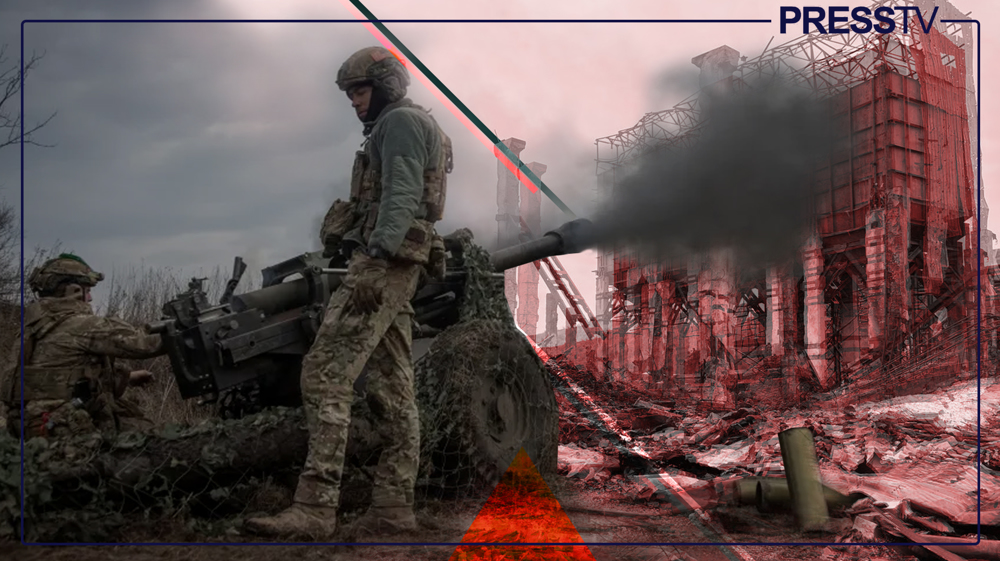
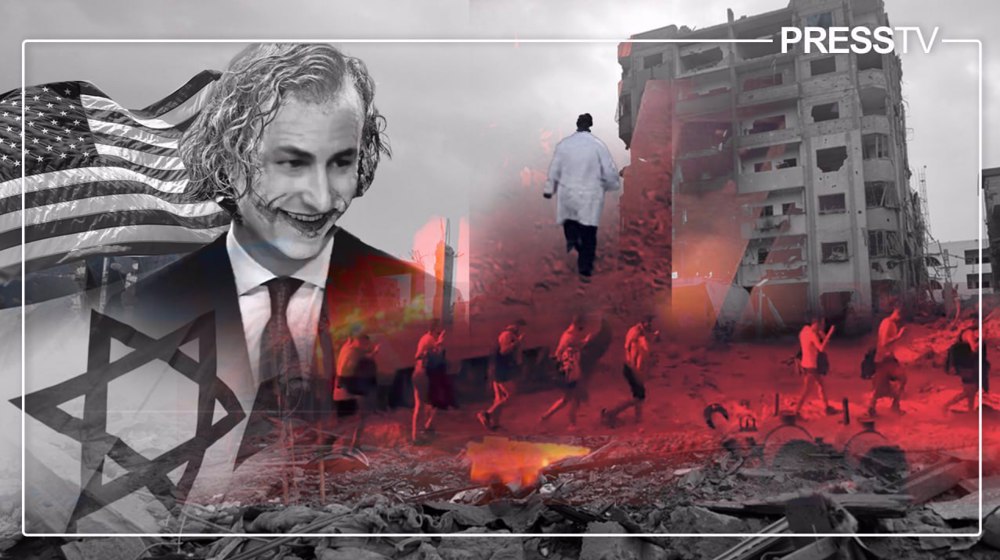
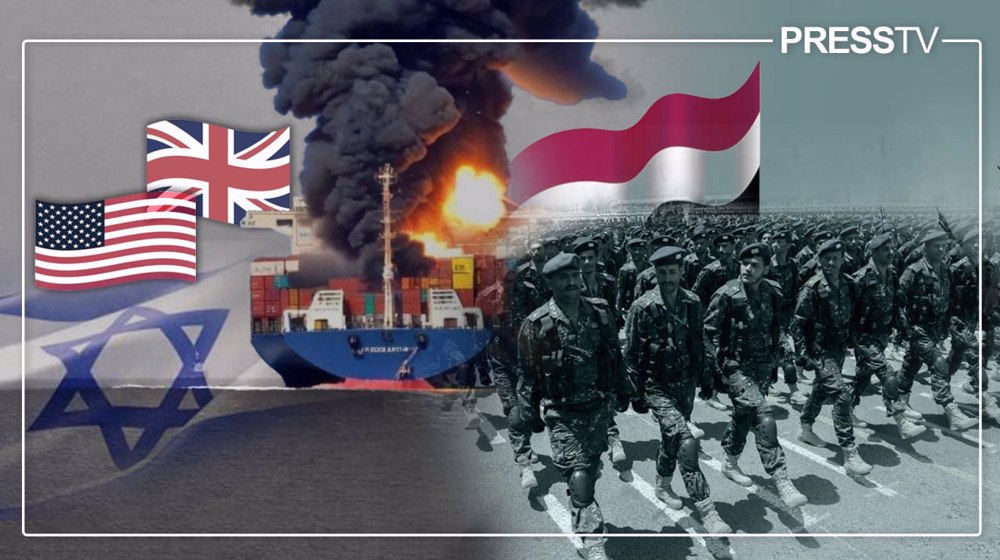




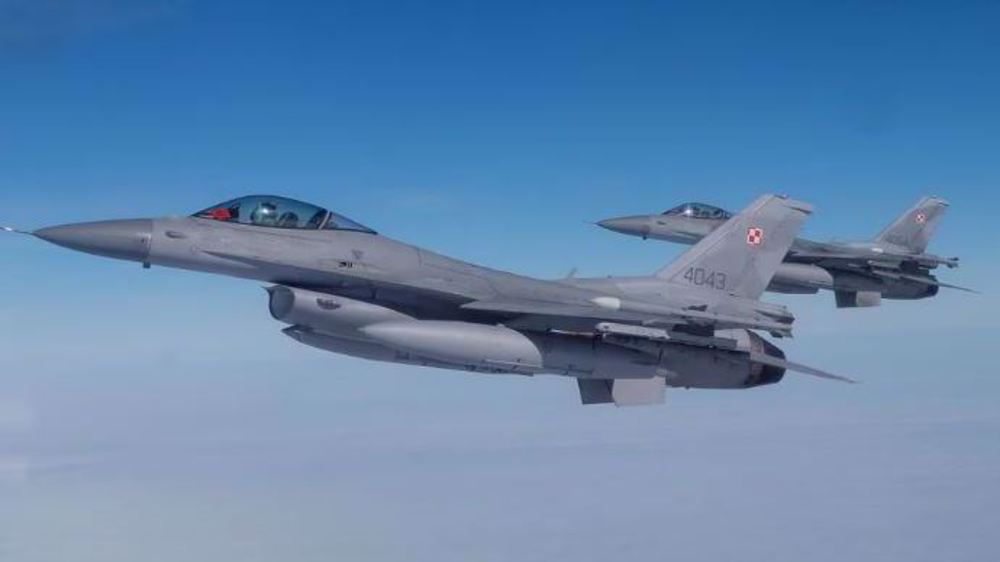
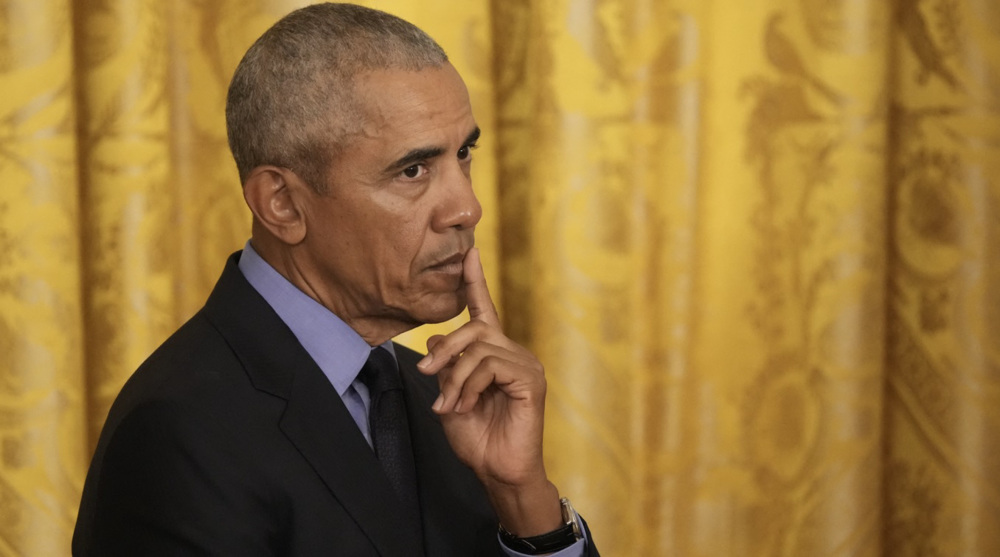
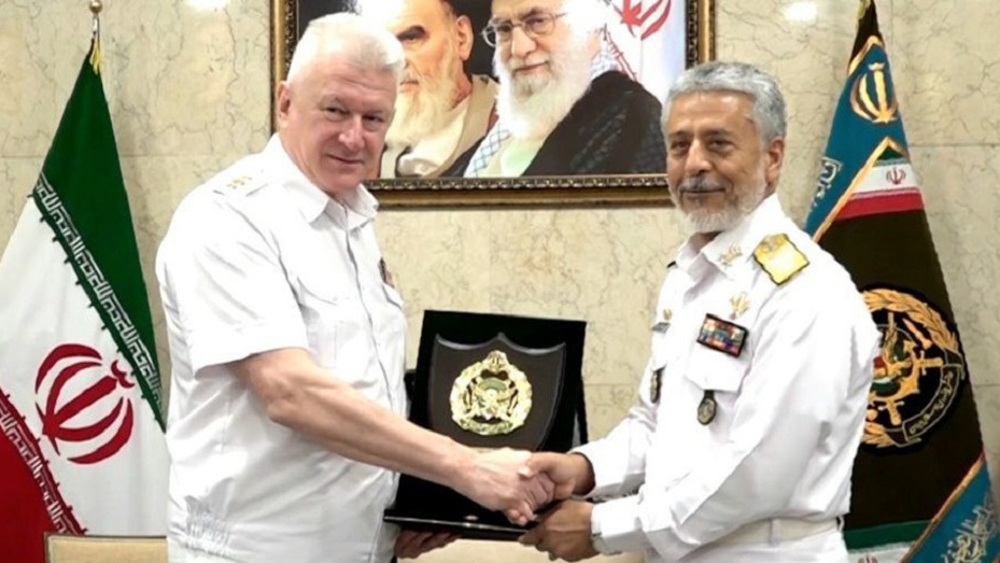
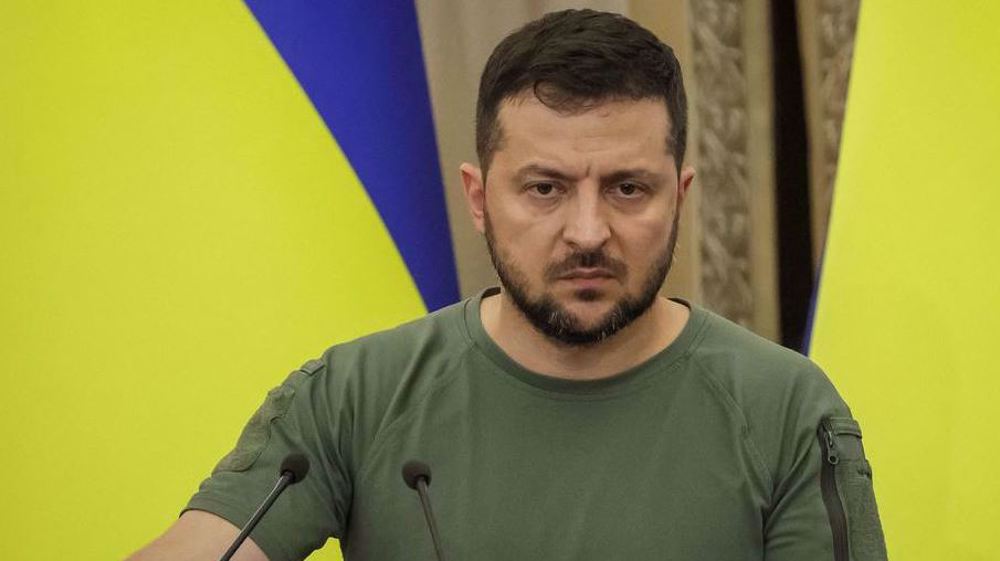
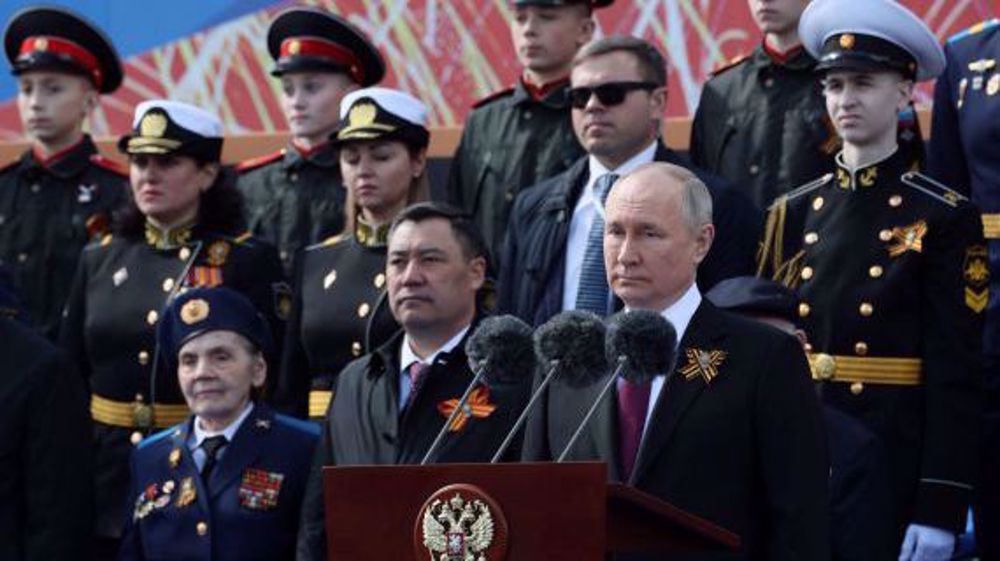

 This makes it easy to access the Press TV website
This makes it easy to access the Press TV website